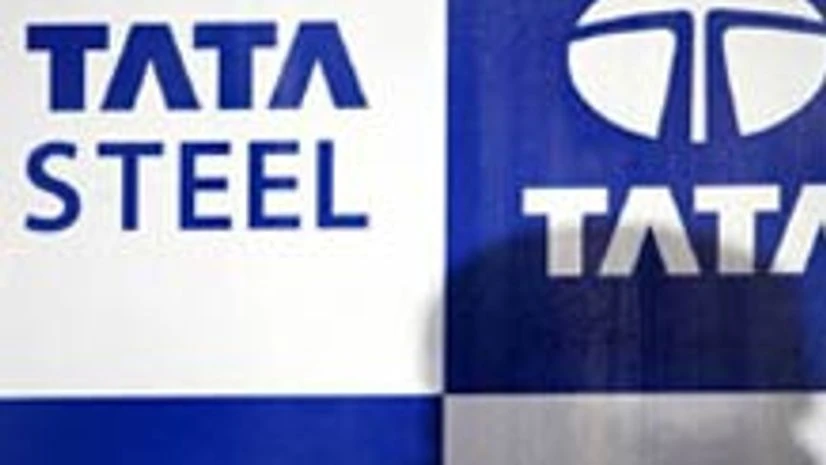When Tata Steel reported Rs 1,139 crore net profit in the quarter ended June, a record in the last two years, it was apparent that its European operations were showing signs of a turnaround following a series of cost-cutting measures such as shutdown of plants and retrenchment of employees.
The steel maker’s $12.1-billion (Rs 53,460-crore) acquisition of Anglo-Dutch Corus in 2007 went through myriad troubles after the global financial meltdown of 2008 and sovereign crisis of 2012 that gripped many countries of the continent. It saw the delivery of Tata Steel’s European units coming down to 13 million tonnes in 2012-13 from 23 million tonnes in 2007-08 as demand crippled. The revival of the company’s consolidated result for the quarter now comes at the back of higher production, both in Europe and India. However, the Tata Group company is not alone in turning around its ill-fated buy-out; Havells India, Hindustan Construction Company and Sona Koyo have also joined the bandwagon of Indian companies, turning around their European acquisitions.
“We have found the bottom of the pit,” says Sunil Sikka, president at electrical goods maker Havells India, talking about the operations of Frankfurt-headquartered Sylvania which Havells acquired in early 2007 for $300 million. In 2012-13, the company reported net profit of Rs 371 crore and revenue of Rs 4,738 crore. At the time of acquisition in 2007, Indian economy was buoyant and Havells had registered a compounded annual growth rate of a 40 per cent in the previous five years. The company wanted to have footprints in Europe where it was already a supplier for well known brands — so, it acquired Sylvania from a group of private equity funds.
Also Read
However, just like Tata Steel’s acquisition, the financial melt-down of 2008 changed the business proposition for Sylvania. The company shut two of its five plants in Europe and created a young leadership team. Besides, it outsourced some of the operations to China and India to save costs, while it continued to leverage the over a century old brand that has strong lineage in Europe.
“Since cost has been properly restructured and so we have now started looking for profit of about eight to 10 per cent at Ebitda level,” says Sikka. The company is looking at new product categories in the LED segment to widen the base and leverage its existing infrastructure.
While recession still haunts many European countries such as Italy, Spain and the Netherlands, two of the continents major economic drivers — Germany and the UK — have started showing revivals. According to the latest data, Germany recorded 0.7 per cent increase in its gross domestic product for the quarter ending June with increasing demand for products. Britain also recorded the same growth rate in the quarter showing signs of revival. Similarly, Delhi-based Sona Okegawa Precision Forgings that acquired the precision forging business of German steel maker ThyssenKrupp in early 2008 for an undisclosed amount, is looking to improve its profit margin as the economy revives. The acquisition made the sister concern of auto component maker Sona Koyo Steering Systems one of the largest forgings groups in the world and provided it access to marquee clients such as Daimler Chrysler, Volkswagen, GM, Renault, BMW.
The company, which funded its acquisition through a combination of debt and equity, had to undergo restructuring of its loan post the crisis.
“Europe is recovering slowly, the worst is behind,” says Surinder Kapur, founding chairman of Sona Group. “The demand has improved and our current challenge is to improve our margins, through productivity enhancement,” he says.
While the acquisition has been harsh on those who acquired prior to the financial meltdown of 2008 using cheap financing, it has been easier who made acquisition later benefitting from cheaper valuations. Mumbai-based infrastructure major Hindustan Construction Company (HCC) is one such player. It acquired a controlling stake in Swiss realty firm Karl Steiner for Rs 150 crore in March 2010 in an all-cash deal to enter the high rise building construction segment. “At the time of the acquisition, Steiner AG was confronted with challenges on multiple fronts: order backlog was declining and the company was making operational losses,” says Rajgopal Nogia, group chief operating officer, HCC.
“We identified some key areas of improvement at the corporate level such as establishing a technical department and introducing project monitoring and controlling,” says Nogia counting the efforts of turnaround. The company also improved bank and financing terms besides optimising the internal processes to improve the results.
The turnaround effort helped the firm record net profit of Rs 31.9 crore in the quarter ended June, from losses it was making even at operational level at the time of acquisitions. Its order books has also shown a sustained growth; it stood at Rs 7,459 crore at the end of the June quarter.
However, industry observers are cautious on this recovery. “It will be a gradual recovery; it is not going to happen overnight,” said Wilfried Aulbur, managing partner of strategic consulting firm Roland Berger in India.
Talking about the revival in demand for auto products, he says: “You may see structural changes in some of the markets as we may not see the same kind of vehicles sales numbers that we have seen in the past.”

)
